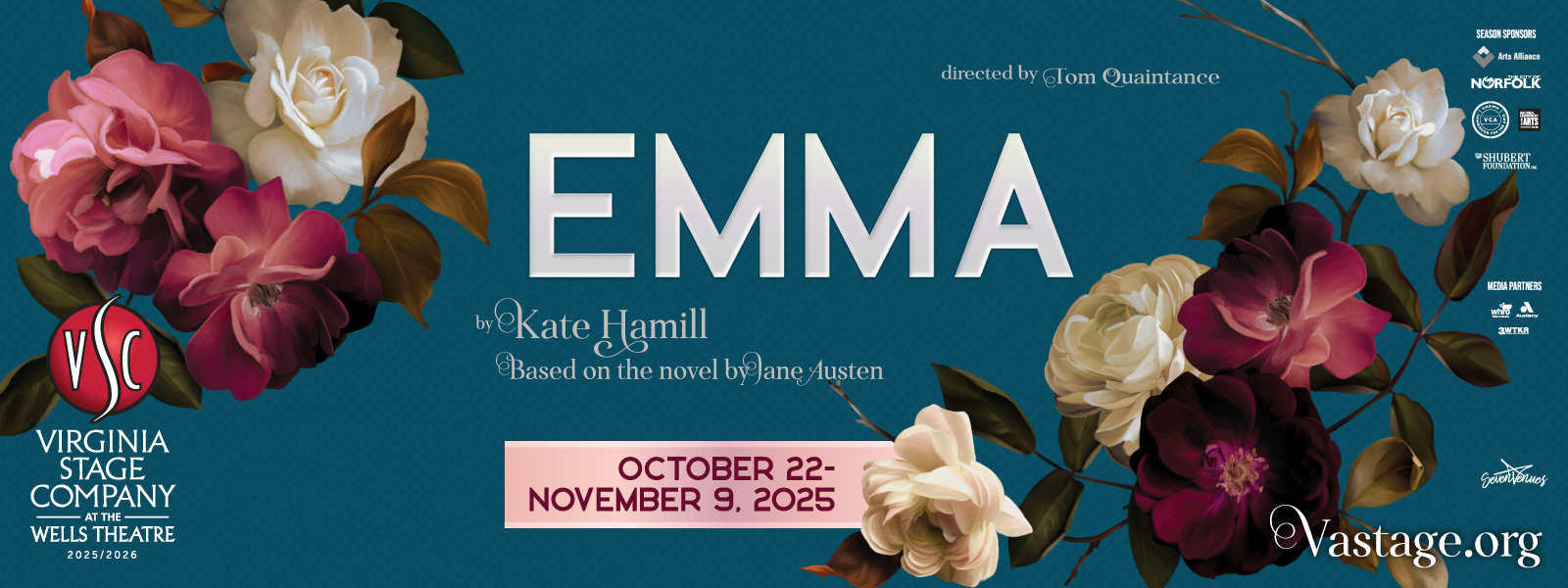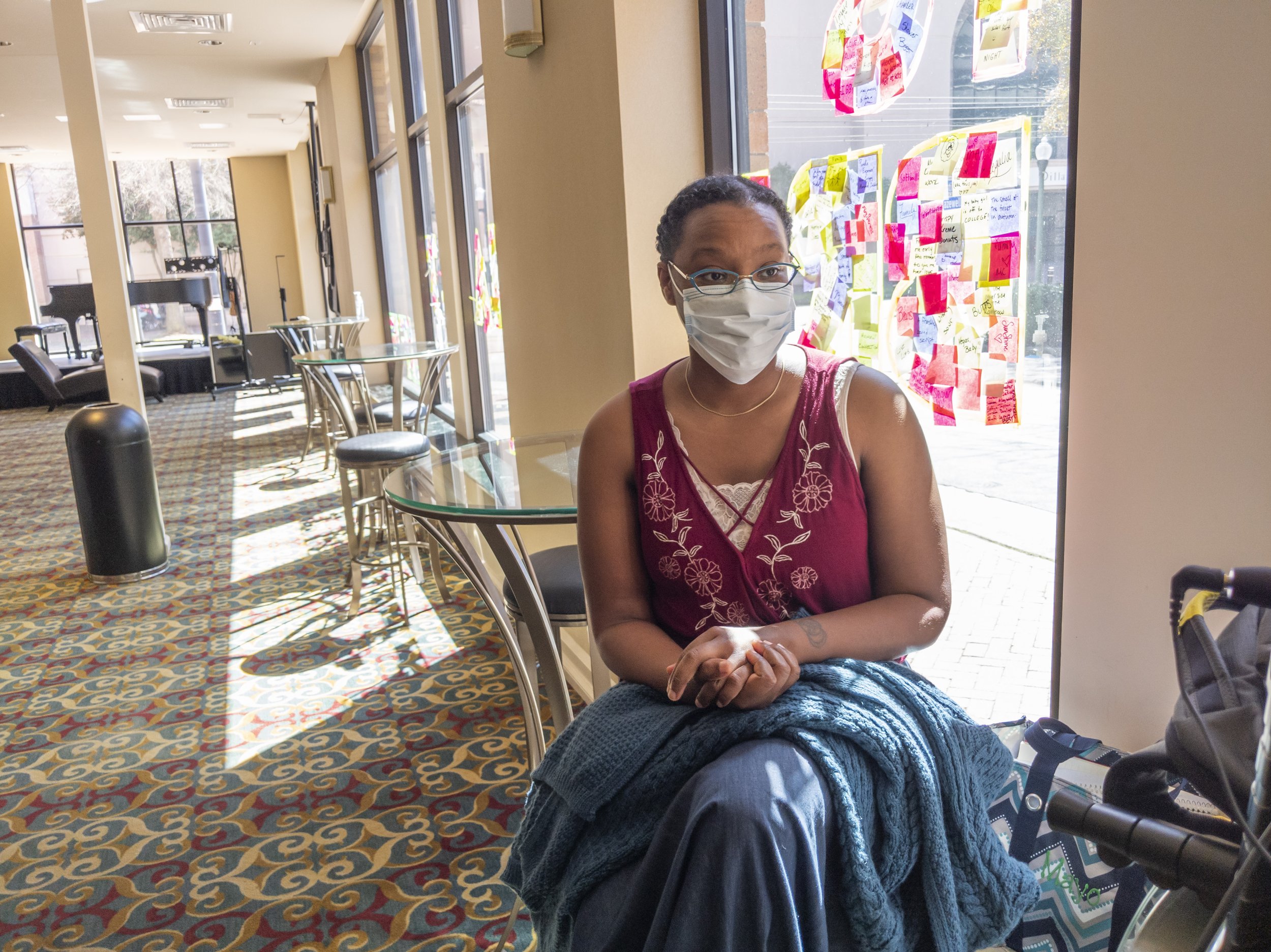This study guide was created through a partnership between Roadsted Montessori Middle and High School and Virginia Stage Company. The students read the novel Emma and conducted research on Jane Austen as well as the Regency time period. With guidance from Virginia Stage Company, they wrote articles on a variety of topics centered around the novel and the time period to provide context for Virginia Stage Company's production of Emma.
How Music Influences Jane Austen
Lenorah Hunt, 11th grade
Jane Austen makes it clear that music was a big deal in her life as well as in her novels. She studied with an organist, but eventually sold the instrument due to having to move. However, she managed to get a new one for thirty guineas, which was a significant amount, but she thought it a necessity. She always began her day by practising with the compositions of Pleyel, Dibdin, Piccini, and others, while her sister listened.
The central female characters in Emma, for example, invariably play the pianoforte. Some are near masters, like Jane Fairfax, while others, like Emma herself, play well enough to draw compliments as well as recognition of their refined femininity, which is a mark of high social status. Jane Fairfax plays an Irish folk tune called “Robin Adair.” Songs in languages such as French, Italian, Irish, etc, were a way for women to seem innocent as well as refined, and hence, appealing for marriage. Musical performance was a great way to see a woman’s talents and education.
The pianoforte had become very popular by the early 19th century thanks to the important keyboard innovations of the Italian inventor Bartelemeo Cristofori in the 18th century. Rather than plucking strings (as had been done before), in Cristofori’s keyboard, felted hammers struck strings. This gave performers greater possibilities to play loud or soft, depending on the needs of a social gathering. In Jane Austen’s England, the pianoforte was the center point of social gatherings and hence the predominant musical instrument in English homes of some means. Music, then, was what brought people together for a variety of occasions.
Music and the Pianoforte in Emma
Garrett Martin, Grade 10
The mastermind behind Emma and other popular books, Jane Austen, has recently been revealed in a short biographical notice of her death. One of her more recent works, Emma, has a focus on music, as Austen shows the general mood and thoughts of Emma through music. This was based upon her own personal interests. Our research into her life shows that she avidly enjoyed music. Owning a pianoforte despite her status as a single woman, she is reported to have collected and played many written forms of music. Originating in the 1760s, the pianoforte is usually played with 4 hands. Commonly being played by women, it allows them a means to express their elegant femininity while bonding with potential suitors or friends. It shows their marriage value and is a representation of their education and status. While renting one is available even for a single woman like Austen, ownership of such an instrument is not for the low status. She passed the time with music when she wasn’t writing her next hit. It should be noted that this wasn’t an occasional hobby. Ms. Austen practiced her music every day before preparing breakfast with the consistency of a metronome. Sadly, as she passed away recently on the 18th of July in 1817, we will never get to see where her fascination with music would have taken her.
Role of Music in Austen’s World
Devin Stiffler, 10th grade
Music in the early eighteenth century was a way to entertain, pass the time, and a way to express oneself. In most homes, the common meeting place was at the piano. Typically four-handed, it acted as a great excuse to have a young man and woman sit together and play. Playing a musical instrument or singing was a way for young women to show off their education and refinement, but also their genuine interest in music. The availability of pianos to rent as well as the boom in the printing of music sheets made the study of music fairly accessible. On the other hand, musical instruments were generally expensive and so owning an instrument was a mark of high social status or aspirations to such. Jane Austen loved music and playing the piano. Throughout her life, she either owned or rented a pianoforte for her own use. Even with the hefty price tag, she didn’t let her financial struggles get in the way. And, after the passing of her father, her brother provided financial support. In Emma, Austen often uses music to hint at or introduce romantic attachments, disclose tensions between characters or set the general mood of a scene.
The Pianoforte
Mason Savage, 10th grade
The pianoforte was a hallmark instrument of Georgian England. It was the domestic instrument of choice, encouraging the large-scale manufacture and rental of pianos and the harpsichord. The pianoforte originated in the 1760s, and it had many variations over time. The pianoforte was split into two variants: the ‘square’ pianoforte and the grand pianoforte. Both were considered luxury items, which meant that most people rented them out rather than directly buying them. As secondhand and rented keyboard instruments became common, so did women's involvement with the instrument. Being able to play it well was an attractive trait for courtship.







